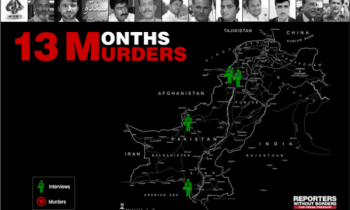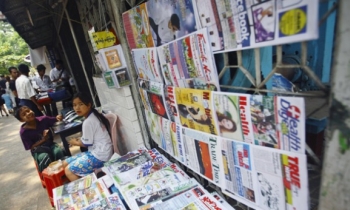(Continued from yesterday.)
The IDC report had a few interesting comparisons. The break-up of time spent on various media showed that though 48.4 per cent of the respondents said watching TV was their favourite indoor activity, they ended up spending more time on the PC (18 hours per week) than on the TV (16 hours per week). Thus, on an average, among all classes, a little more than two hours were spend daily watching television. In comparison, about three hours were spend on the computer (though not necessarily on the Internet), one hour was spend on books and magazines and an hour on newspapers.
However, this figure varied according to age and work. While teenagers (defined in the report as 12 years to 18 years), and youth (defined as between 18 and 25 years old), spent equal time - one hour each - on the computer and on television daily, the middle-aged (25 to 35) and the aged (35 and above) spent an average of three hours on the computer and one on television each day. Analysts say that this figure could reflect the universal presence of the computer in modern work places.
What is interesting is the way the Internet is slowly but surely biting into the share of other media. Among heavy users of the Internet (defined in the report as those who accessed the net several times a day), 38 per cent said that the Internet had cut into their TV time. About 18 per cent said that it had cut into their newspaper time and 23 per cent it had cut into their magazine time. Ironically, in this group, the radio lost the most, with 56 per cent saying that the net cut into their radio time. Thirty-three per cent of the heavy users said that the net had cut into their recorded music time.
Another big loser was movies. Among the heavy users, 54 per cent said that the net had cut into movie time. Even among the medium users (defined as those who logged on to the net once daily or at least two to three times a week), and the light users (defined as those who logged on once a week), movies lost out. Forty-nine percent of medium users and 43 per cent of light users said that the net cut into their movie time. Among the medium users, 28 per cent said that the net had cut into their television time, 28 per cent also said that the net had cut into their newspaper time; 33 per cent that it had cut into their magazine time, and 36 per cent said it had taken their recorded music time.
Once again, radio was a loser, with 52 per cent of the medium users saying that the net had cut into their radio time. Among light users, this figure stood at 48 per cent. Only 20 per cent of light users said that the net had cut into their TV time, 24 per cent said that it cut into their newspaper time, and 23 per cent said it had cut into their magazine time. Twenty-nine per cent of light users said that the net had cut into their recorded music time.
Research by indiameter.com also confirms that among heavy users at home - those who spent up to 50 hours or more on the net at home - the growth of the Internet is coming at the expense of television. And, in this, India seems to be keeping in tune with the international scenario, where heavy net usage cut into television time, but is different in that in the Indian scenario, both the movies and radio have lost heavily.
According to the IDC figures, more money was spent on the net than on other media. A Sec-A user, on an average, spends Rs 596 on the net per month, while he spends Rs 147 on video games, Rs 131 each on video cassettes and recorded music. Of the other forms of media, he spends Rs 132 on television, Rs 110 on newspapers, and Rs 107 on magazines.
The point of access is also indicative of the purchasing power of the users. For example, the primary point of access among heavy users was the home or the office, showing how the PC has become almost part of the daily lives of SEC-A respondents. However, right now, only a very small section uses the net for online shopping.
Recently, Mumbai-based portal Indbazaar.com carried out a survey among a target group of more than 30,000 surfers in the metros, who were between 18 to 40 years old. The survey found that users spent most of their time (40 per cent) on e-mail or chat, 35 per cent on finding information, 25 per cent on entertainment (mainly games), and just 10 per cent of the users surveyed spent some time on online shopping. One thing came across strongly. The Internet is bound to emerge as a strong medium. The economics are in its favour. It will cost less than a rupee to send a personal message to a potential target on his mobile phone - a target that has been accurately chosen using databanks.
Comments Gautam Nath, director corporate, NFO MBL India Pvt. Ltd, "How fast the penetration picks up will depend on how far the industry takes a lead in using the net, but we will see an e-India."
Unlike television or radio, which evolved in clearly marked stages, the Internet is the first medium to bypass stages of evolution. And so, before we know it, we could be there.









